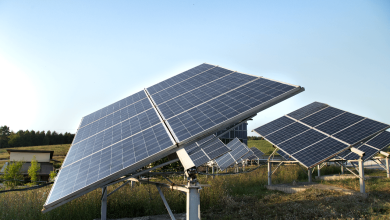How ‘Just Transition’ Sustainability Plans Can Make a Difference

In the heart of Hong Kong’s bustling corporate landscape, an uncharted terrain looms large—the concept of a “just transition.”
These investors, eager to uphold environmental, social, and governance (ESG) principles, are now turning their inquisitive gaze towards the potential social repercussions of corporate climate and sustainability strategies.
Traditionally, when Hong Kong-listed firms engaged with institutional investors, discussions revolved around the reduction of greenhouse gasses and improved waste management. However, Cheung, a man with his finger on the pulse of sustainability, believes the narrative is shifting.
Hong Kong Companies
Hong Kong’s Chamber of Hong Kong Listed Companies recently hosted an ESG and green finance forum, where the spotlight fell squarely on “just transition.”
This paradigm encompasses not only environmental considerations but also the societal impact of sustainability decisions—a far-reaching challenge for corporate leaders.
Consider this: Developed nations and financial institutions have committed to helping countries like South Africa, Indonesia, and Vietnam expedite the shutdown of their coal-fired power plants.
It’s a complex, multi-stakeholder dance involving governments, banks, and investors, with the power plant owners seeking compensation through adjusted financing or renegotiated power agreements.
But this phenomenon goes beyond international discussions. At the grassroots level, the just transition means offering support, including skills development and alternative job creation, to workers and communities affected by the phase-out of environmentally harmful operations, such as coal mining.
Sustainability at the Forefront
Jenn-Hui Tan, Chief Sustainability Officer at Fidelity International, encapsulates the essence of a just transition. She describes it as a means to navigate the inevitable shifts in economic landscapes, where new opportunities arise as legacy industries decline.
Yet, despite the growing emphasis on this concept, the performance of many companies has been lackluster. The WBA’s report, published in November 2021, presents a sobering picture. Among 180 major players in sectors like oil and gas, utilities, and car manufacturing, only nine scored above 50% across six just transition indicators. This suggests a glaring dearth of preparedness in addressing the social impacts of low-carbon transition strategies, potentially endangering more than 11 million workers.
The report’s warning bells echo loudly—company inaction could jeopardize the entire low-carbon transition, ushering in increased inequality, widespread unemployment, and social unrest.
Within the realms of Hong Kong and mainland China, Cheung underscores the need for companies to foster cross-sector collaboration, prioritize renewable energy investments, support green technology research, and weave ESG considerations into their financial decision-making fabric.
Investors are increasingly aligning themselves with projects that echo the United Nations’ 17 sustainable development goals, seeking innovative ventures that merge profitability with sustainable solutions.
ALSO READ: 40%+ of French Favor Lifetime Flight Limits Due to Climate Change: Poll
However, a survey by Fidelity revealed that many professional investors have yet to fully incorporate the concept of a just transition into their investment strategies. Only 42% of respondents were familiar with the term, and among them, a mere 35% were actively crafting dedicated investment strategies around it.
As Hong Kong-listed companies navigate the uncharted waters of a just transition, they face the dual challenge of reducing their carbon footprint while ensuring a socially responsible path forward. It’s a journey fraught with complexity and ambiguity, demanding a symphony of cooperation and inventive solutions from all stakeholders.



